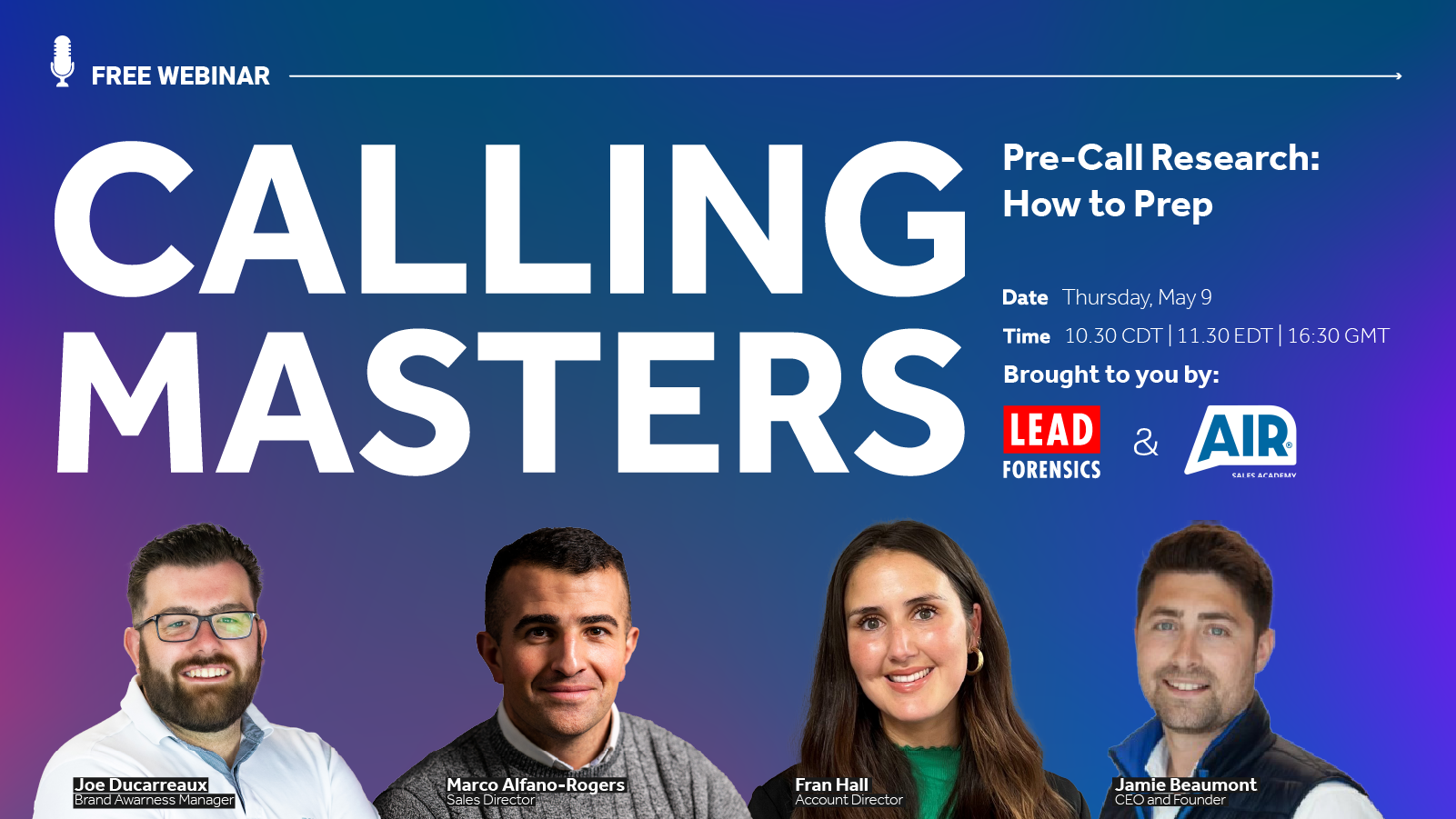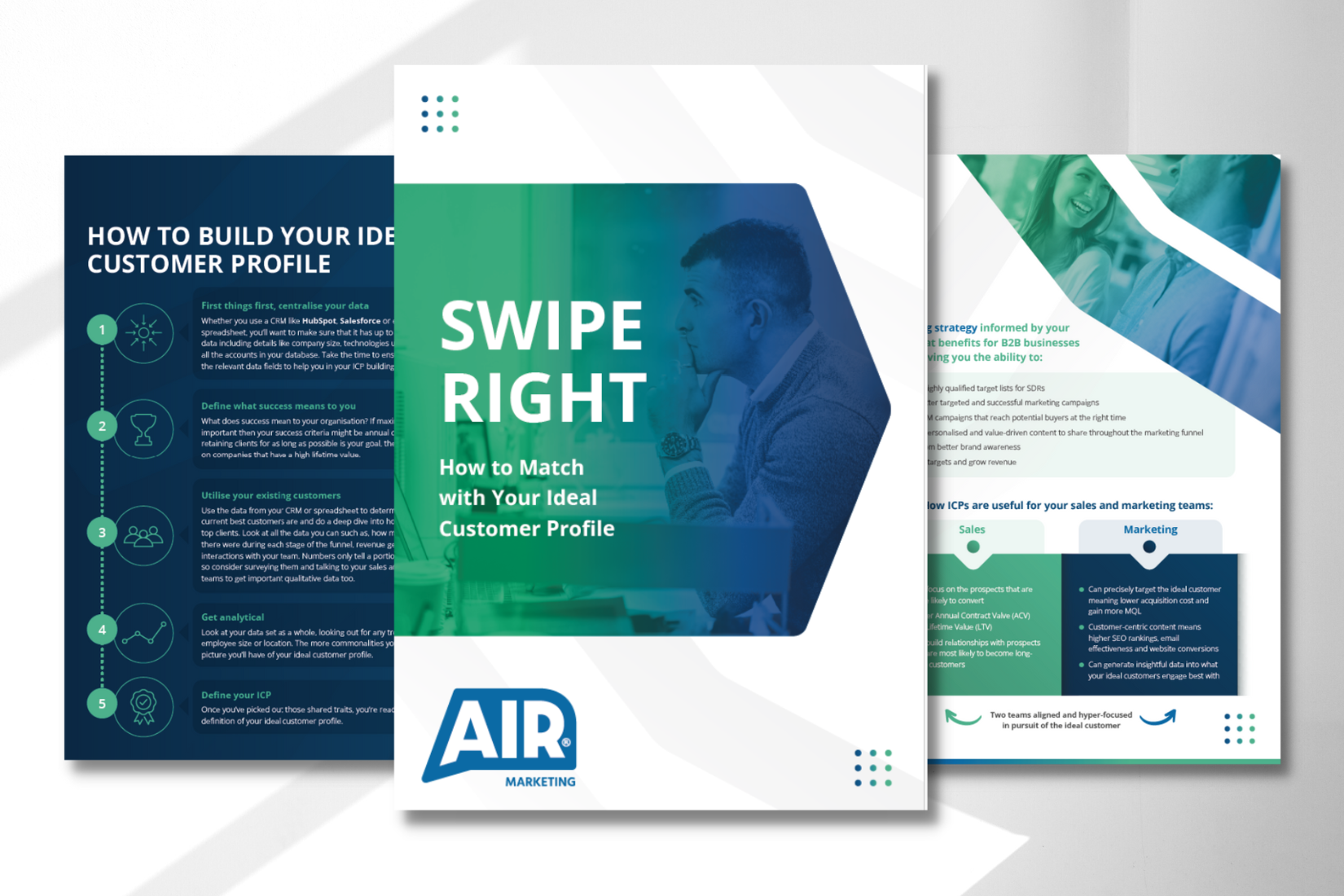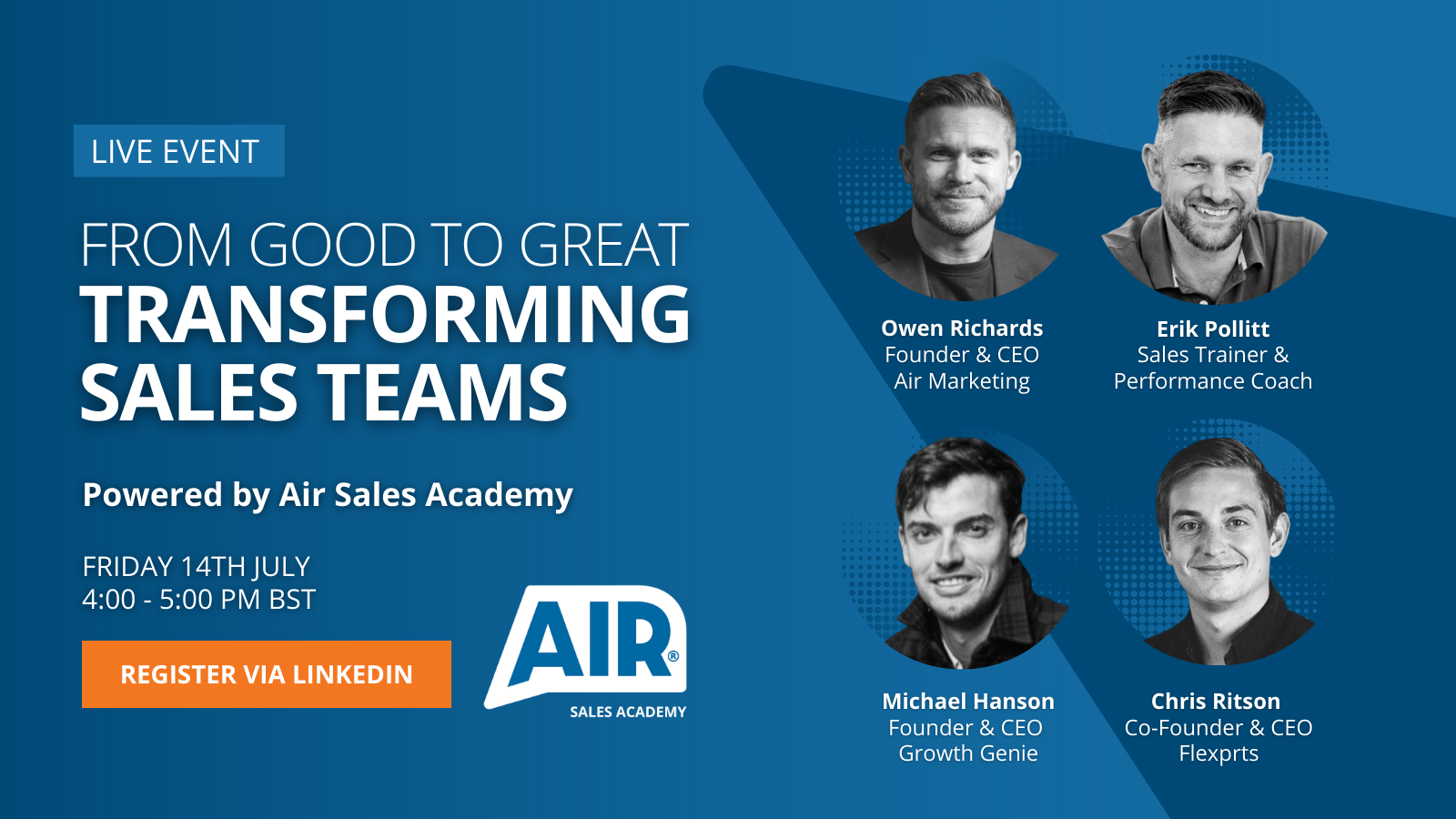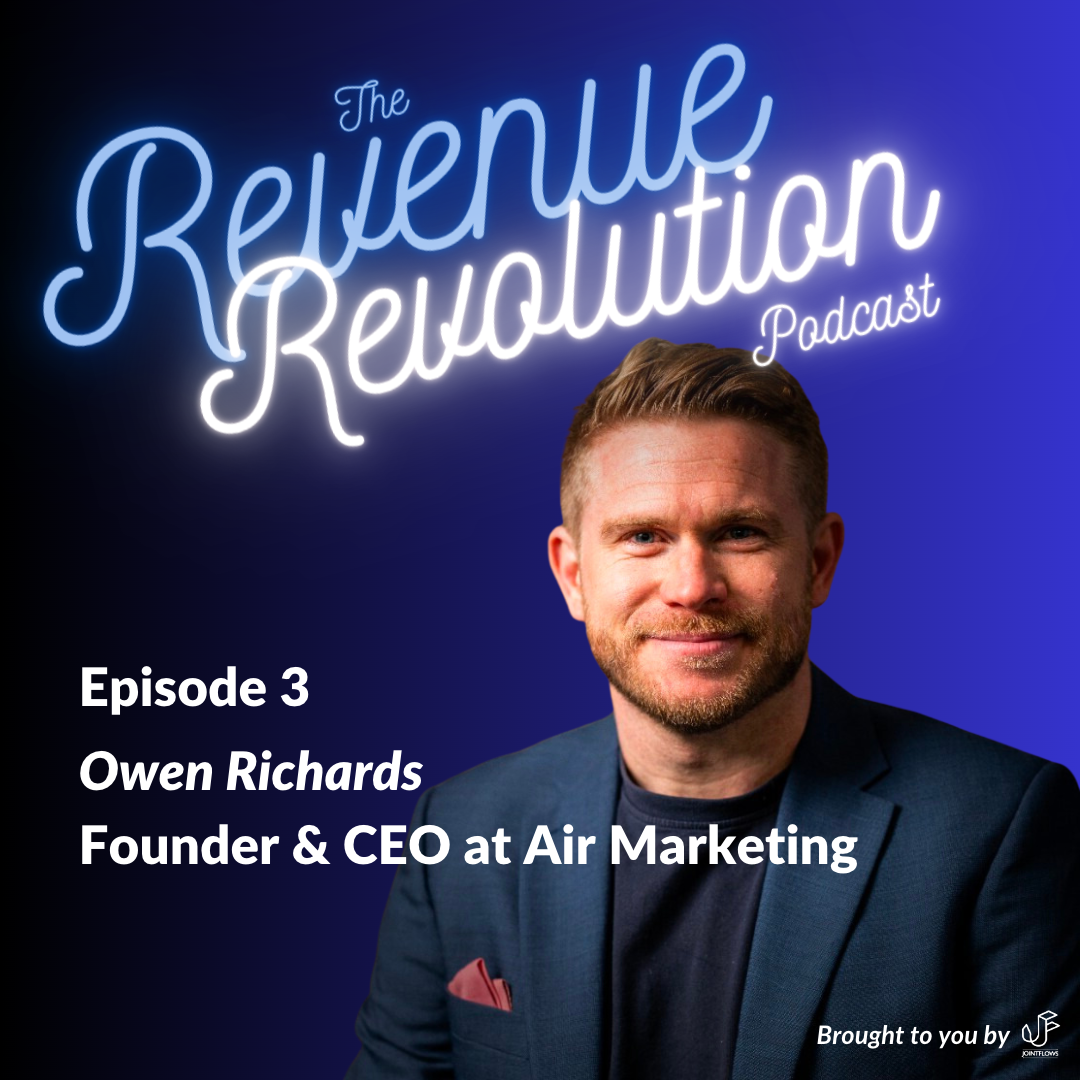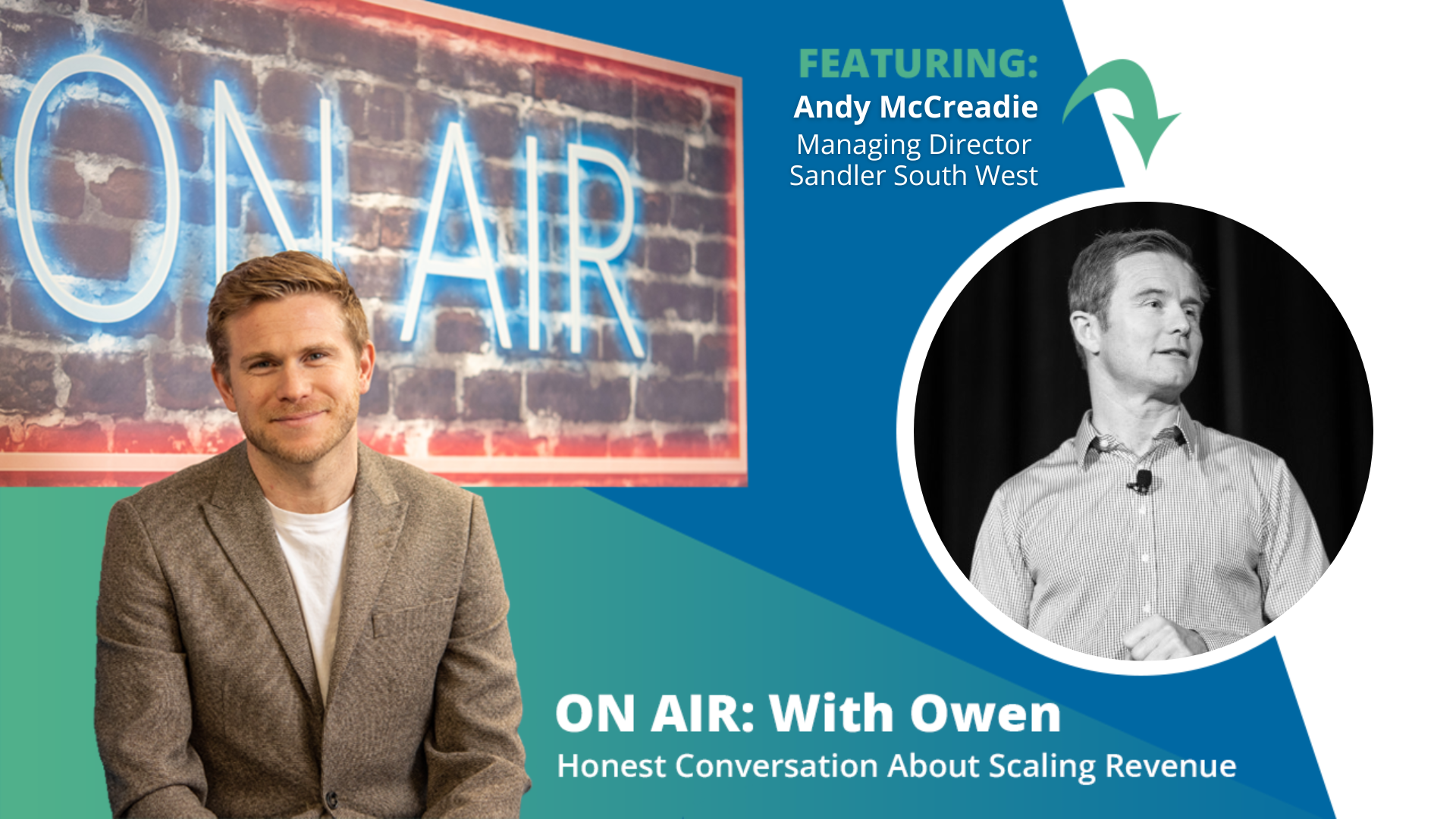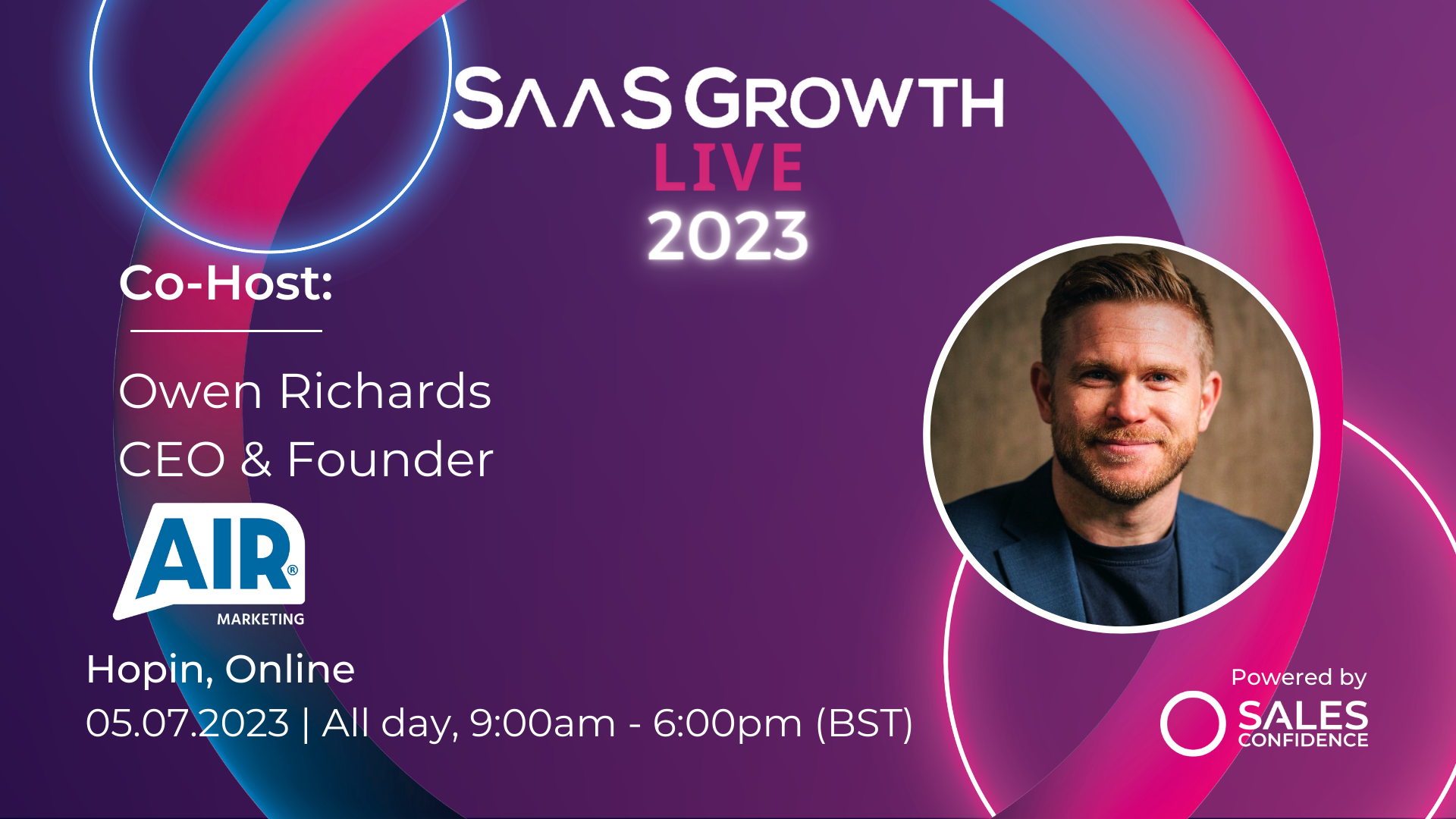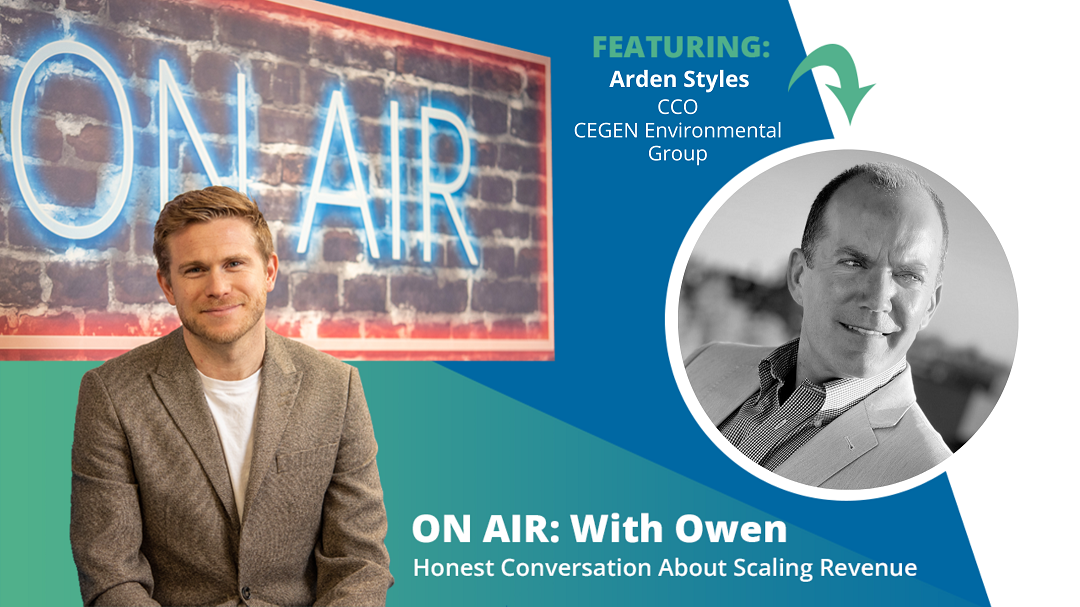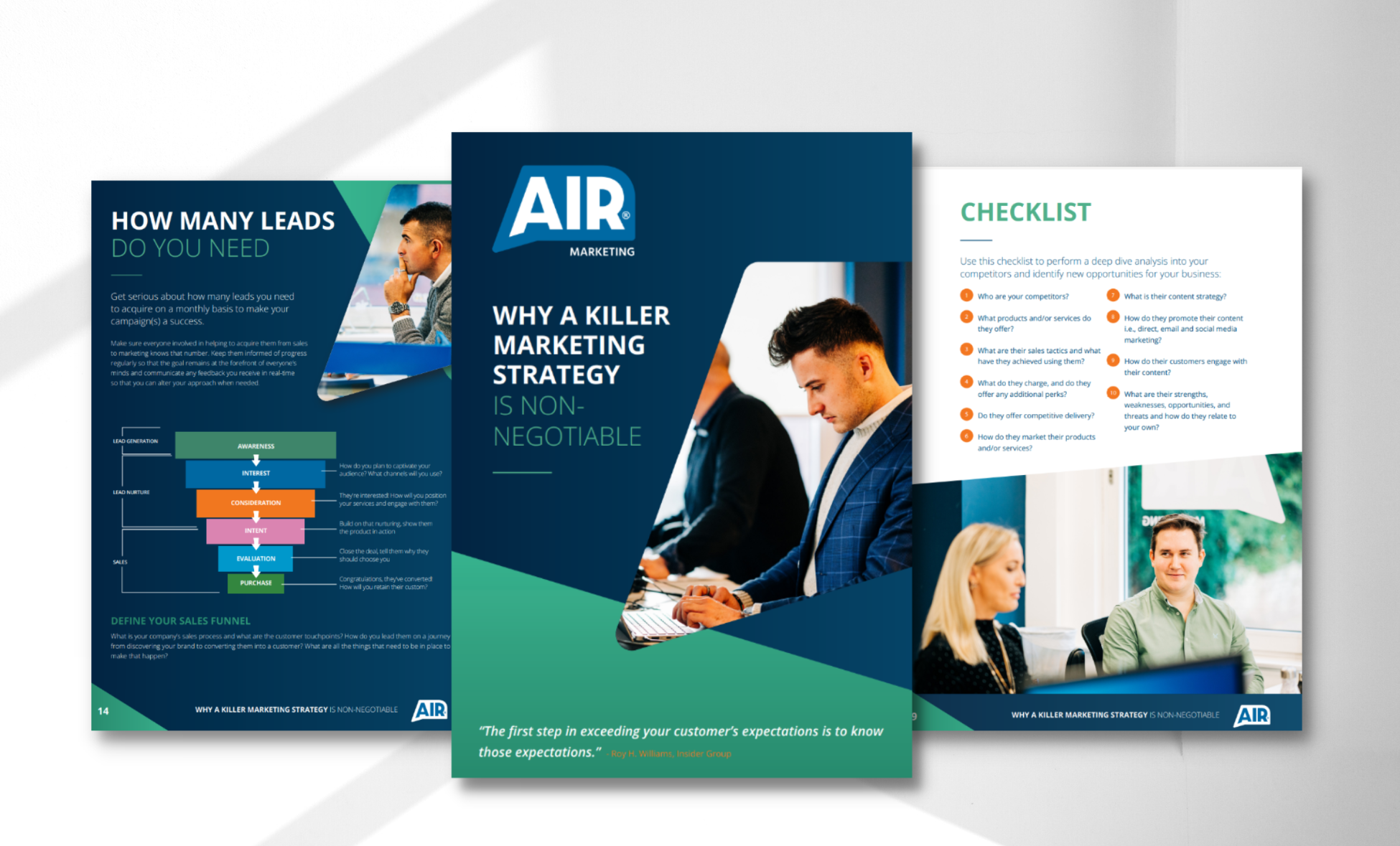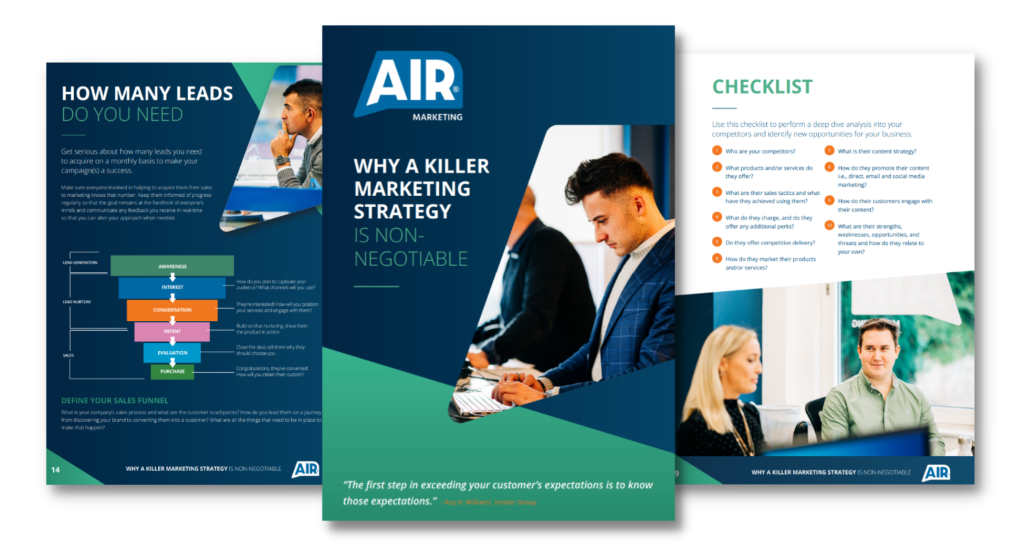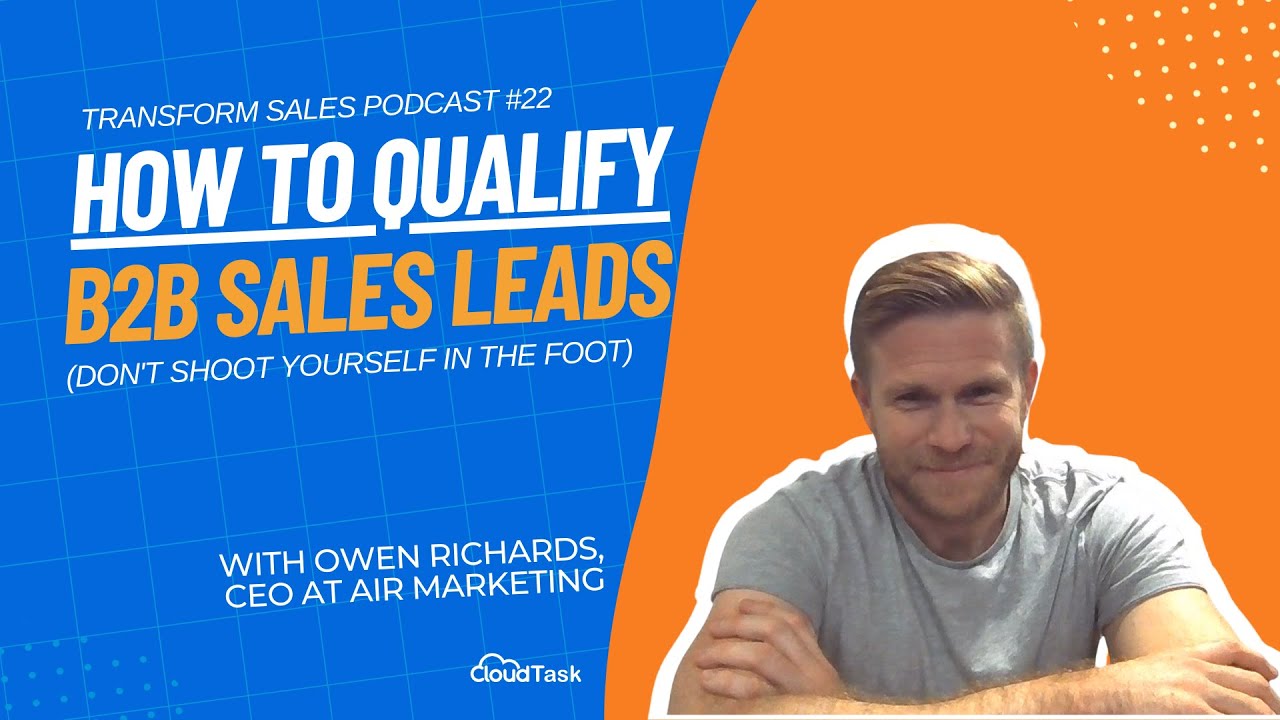Tired of wasting time on unqualified leads and getting stuck in voicemail jail?
If you want to increase your closing rate over the phone, you need to understand who you’re selling to.
In this webinar, the first in our Calling Masters series in partnership with Lead Forensics, we’re discussing the key elements of pre-call preparation to ensure that you’ve packed out your cold call toolbox.
You’ll learn:
- How to quickly gather relevant knowledge about your prospect’s business, their specific needs, and the key players you need to connect with.
- Which essential tools will help inform your approach during your call to the prospect.
- How to apply the information you find during your research on the cold call and ensure your sales success.
Our panel features:
Marco Alfano-Rogers – Sales Director at Air Marketing
Fran Hall – Account Director at Air Marketing
Jamie Beaumont – CEO and Founder of Playter
Host:
Joe Duccarreaux – Brand Awareness Manager at Lead Forensics
Who is it for?
Founders & CEOs
Sales & Marketing Leaders
Revenue Leaders
Sales & Marketing Managers
Sales Development Representatives (SDRs)
Business Development Representatives (BDRs)

